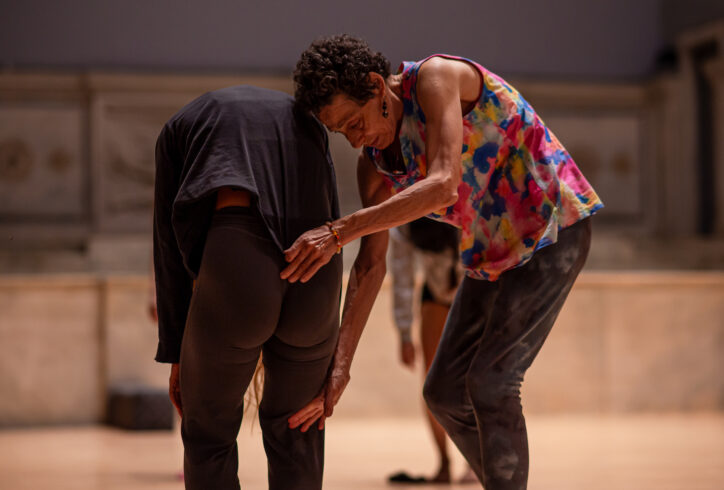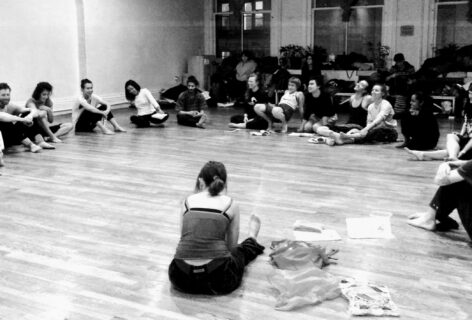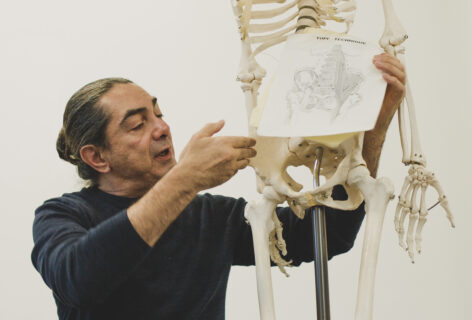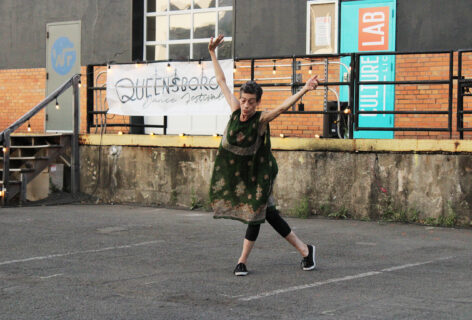Klein Technique™ works at the level of the bone, the simplest and deepest structure in the body to work with clarity, imagery, and energy. Working on this level allows us to drop in under the layers of muscle which holds us in set postural configurations. The work we do in class focuses on deep connections of support and movement: Freeing the legs and spine, connecting the pelvis to the legs, and connecting the upper body to the lower, and the skull to the feet.
Barbara Mahler’s Klein Technique class always begins the same way:
Students slowly roll down until they’re completely folded over—and stay there for about half an hour. This, dancers say, is where tiny miracles happen. There’s a Zen-like calm so strong it’s palpable, as Mahler weaves through her students, gently inviting them to bring attention to the Pelvis (sitz bones to heels) or the head to the tail. “This is a way to re-educate and facilitate change — it’s knowledge for people to help themselves move better, with less pain and more ease,” says Mahler, who has been teaching Klein for 40 years.
Klein Technique began developing in the mid 70’s as a response to a devastating knee injury. Part somatic practice, part movement technique, its repetitive, slow moving approach helps students realign and re-pattern their bodies, leading to the dissolution of bad habits, a new range of motion, and injury prevention. Barbara Mahler came later, in the early 1980’s to study, and to learn.
Accessibility Notes
- This class includes auditive guidance.
- This class occasionally includes printed materials.
- This class takes place at Eden’s Expressway.
- There is a small elevator available upon request, please reach out for exact dimensions.
- NOTE: The bathroom in the space is not wheelchair accessible.
To request ASL interpretation or Audio Description, please email accessibility@movementresearch.org, subject line “ASL/Audio Description Request, Barbara Mahler” at least three (3) weeks prior to the class start date.
For access-related questions and requests, please contact accessibility@movementresearch.org, subject line “Barbara Mahler.”





